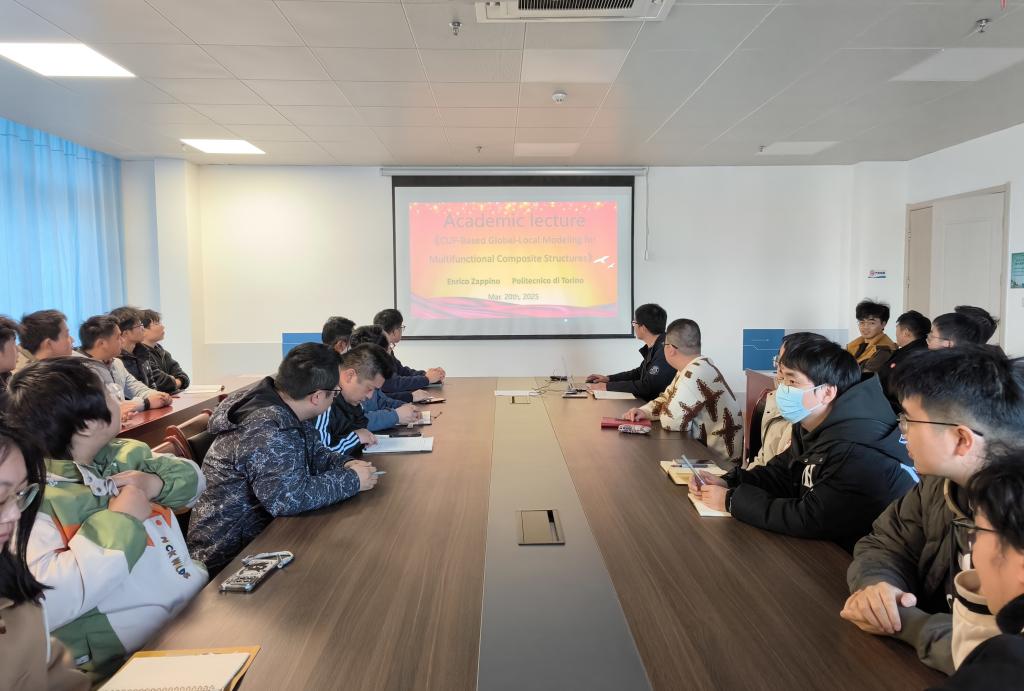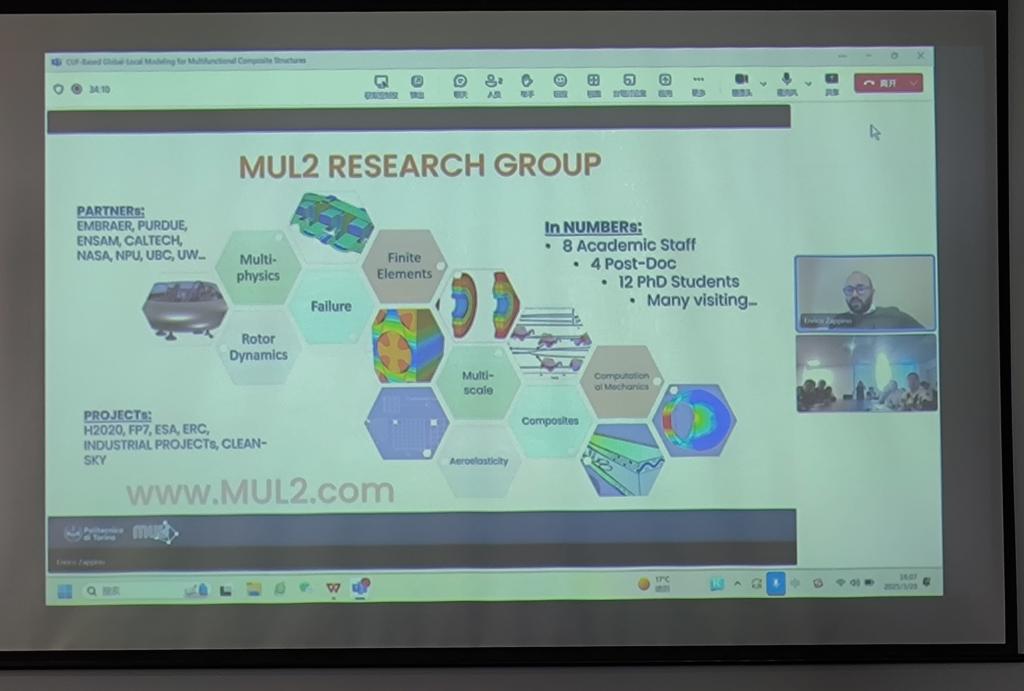Associate Professor Enrico Zappino from Polytechnic University of Turin in Italy was invited to conduct an online academic exchange and deliver a special academic report titled “CUF-Based Global-Local Modeling for Multifunctional Composite Structures” for the School of Intelligent Manufacturing of TU on the afternoon of March 20th. Teachers and graduate students from relevant majors of the School of Intelligent Manufacturing attended the event.

Teachers and students in attendance
Enrico Zappino, drawing from his research and practical experiences, mainly introduced the increasingly widespread application of smart laminated composite structures in the fields of aerospace and high-performance engineering, which urgently requires advanced numerical modeling strategies capable of accurately capturing their complex mechanical behaviors. His study proposed an innovative global-local modeling method based on nodally-dependent kinematics (NDK) and Carrera’s Unified Formulation (CUF) to enhance the simulation accuracy of wave propagation, structural health monitoring (SHM), and damage detection in composite plates with embedded piezoelectric sensors.
The method proposed ensures a detailed and accurate description of the stress field, including transverse stresses—a critical element often oversimplified in traditional models—by achieving kinematic refinement at the nodal level. The modeling strategy allows for the adoption of high-fidelity layer-wise models in local regions, while using efficient homogenized equivalent single-layer models in the remaining areas, significantly optimizing computational costs while maintaining accuracy.
In addition, this framework effectively addressed multi-field coupling problems by considering the electromechanical interactions between piezoelectric transducers and the host structure. This capability is crucial for the accurate simulation of structural health monitoring systems, where the interaction between mechanical waves and embedded sensing elements can be used to detect structural anomalies. The proposed method provided a robust and efficient tool for the analysis of active composite structures, contributing to the development of next-generation structural monitoring technologies and multi-physics modeling strategies for critical engineering applications.

Enrico Zappino gives an online lecture
Toward the end of the lecture, Enrico Zappino engaged in in-depth exchanges and discussions with the attending teachers and students.
Expert Profile:
Enrico Zappino is an associate professor at Polytechnic University of Turin and specializes in structural analysis and advanced modeling techniques. He has been a member of Professor Carrera’s research team since 2010 and has co-authored numerous papers published in top international journals. His research focuses on structural analysis, multi-physics analysis, manufacturing process simulation, and 3D printing technology for aerospace materials. During his doctoral studies in aerospace engineering, he developed innovative one-, two-, and three-dimensional models for spacecraft structural analysis.
Zappino has long been involved in research projects funded by the European Space Agency and the European Union, maintaining close cooperation with industry and academia. As a senior member of the Italian Association of Aeronautics and Astronautics (AIDAA) for over a decade, he has been engaged in teaching since 2011 and currently serves as a visiting professor at the Tashkent Branch of Polytechnic University of Turin. Additionally, he served as the Executive Project Manager for the 2024 International Astronautical Congress (IAC), responsible for the organization of the event. His academic contributions span the entire innovation chain from fundamental theoretical research to engineering applications, particularly exerting significant influence in the field of high-precision modeling for aerospace structures.